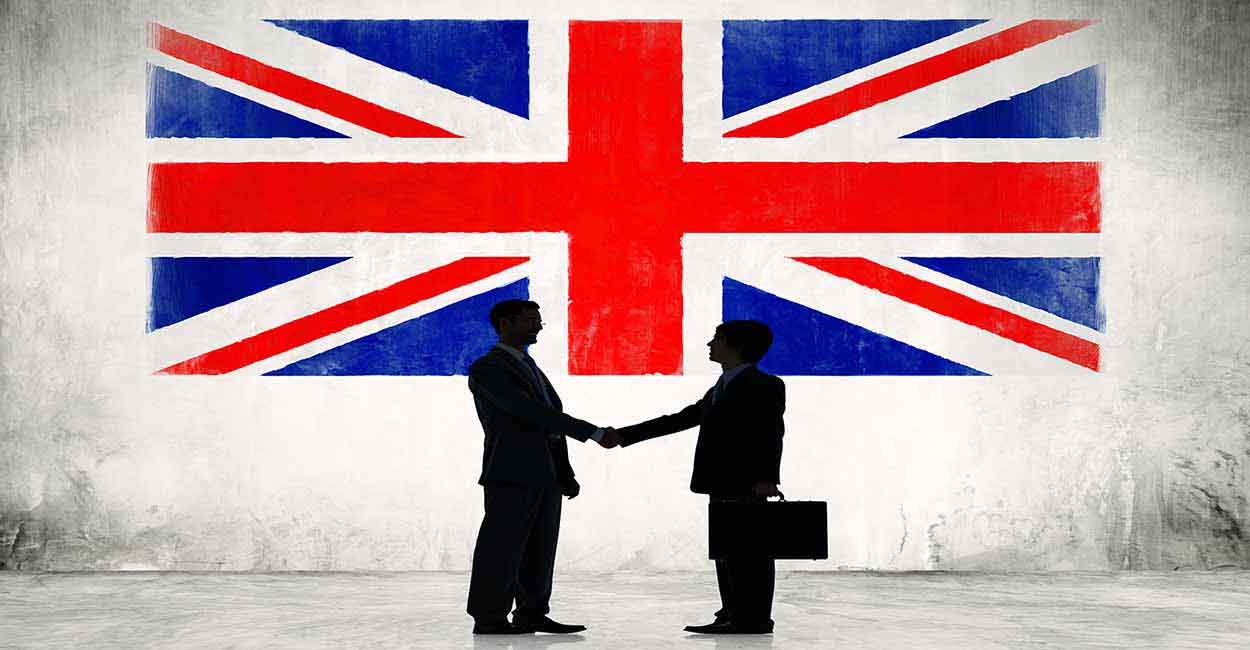Overseas Entrepreneurs Should Know The Unwritten
- In UK Work Culture
- 27 Oct 2021, 09:16 PM

"National Culture cannot be changed, but you should understand and respect it."
- Geert Hofstede
Work Cultures are built on specific values and principles that guide how individuals think and act in their working lives. Work culture represents how individuals think and act in both positive and negative ways. To interact with colleagues or business partners, one must understand their views and beliefs. Ignorance may cause a cultural barrier, obstructing communication and jeopardising the effectiveness of the company operations in a foreign country.
Foreign business partners, business owners or entrepreneurs might view their British colleagues to be overly courteous initially. When asked for their honest opinion, people in the UK do not typically criticise or outright complain in public or even offer negative feedback, regardless of whether these remarks are justified. Reading between the lines and seeking out the honest thoughts of relevant people is therefore essential. Similarly, businesspersons must ensure that their messages are precise, leaving no space for assumptions or hidden meanings that could be misconstrued.
British and Work/Life Balance
Work-life balance is regarded highly in the UK. Employees in the United Kingdom are entitled to mandate yearly leave, vacations, and no work interruptions on weekends. According to Hofstede's cultural dimension, British culture is a tolerant society. British people are known for their willingness to follow their instincts and inclinations to enjoy life and have a good time. They value leisure time more, act as they please, and spend their money as they choose. Compared to India, where many techies work during the weekends and holidays, the UK adheres to stringent work-life balance guidelines. As an entrepreneur, one must recognise this and take necessary steps to maintain employees' work-life balance.
Some common dispositions, beliefs, and business implications are observed in workplaces throughout the UK. Considering them before branching a business out or opening a new business in the UK might prove beneficial.
Process abiding a meritocratic society
Inequalities between people should be minimised, according to British society. Employees should be treated equally in all aspects motivated by a sense of fairness.
Entrepreneurs from hierarchical and top-down societies, such as India, must transform their mindset about tolerating uneven rights between the powerful and those lesser down in the pecking order.
When an employer has staff from various backgrounds in the company, it can help draw on a wide range of experiences and thus bring a larger pool of creativity and ideas to the table. Entrepreneurs from hierarchical structures, especially Indian entrepreneurs, must understand the benefits of equality to the business. A varied staff fosters creativity, has room to modify goods and services to appeal to a larger audience, and the teams can collaborate to achieve more innovation.
It helps to keep employees motivated and tells them that the firm is fighting for equality by making efforts like releasing gender pay gap reports or introducing female leadership training programmes.
Adhering to Punctuality
"Manners maketh man" - this idiom indicates that a person is assessed based on how they treat others. This phrase comes from the UK, and it merely emphasises the significance of good manners in British society.
While welcome is one method to demonstrate manners, timeliness is also essential. Always arrive at meetings on time, ideally five minutes early. This habit can help establish a good first impression and get the meeting started right away. Reporting late or attending a meeting a bit later than the proposed time, make sure to contact ahead of time to notify the correct personnel and provide an alternate time for the meeting.
Finally, if your meeting is going to run for a specific time, commit to it. Make sure the meeting concludes on time since meeting attendees might need to be someplace else. It is essential to respect people's time since the busier they are, they are more likely to leave for another commitment.
The Custom of Gift Giving
Presenting a gift is not common in British business norms; however, while exchanging presents, reciprocation is expected. Businesses in the UK are advised not to donate, while others are legally prohibited from doing so. When a gift is given, it is crucial to ensure it is neither too costly to be considered a bribe nor too cheap to be considered an insult. Mementoes from the visitors' country, company's greeting cards, journals, wine, flowers, pencils, books, or invites to a cultural event are just a few examples of appropriate presents. While receiving a present in public, one must open it right away and appreciate the giver for their thoughtful gift.
It is not customary to exchange business presents at Christmas; sending a greetings card to convey gratitude to your business colleagues is still a good gesture. On the other hand, successfully closing a deal provides an excellent chance for gift-giving to acknowledge the event. Such presents should ideally be made of gold, silver, or porcelain.
It is customary to bring a bottle of wine and maybe a modest gift, such as flowers or chocolates, if getting an invite to dinner or a party at the house of one of your work colleagues. Red roses (which imply passionate intentions) and white lilies (which signify grief and funerals) should be avoided when gifting flowers.
Dress Code for Business
Both men and women in British culture are expected to dress smartly and formally. Men usually adhere to traditional suit culture, whilst women adhere to an elegant dress code that includes skirts and smart and traditional business outfits. Colours such as black, white, grey, and dark blue are worn in the workplace, but bright colours are a big no. In British society, high-end designer shirts, silk ties, custom suits, and luxury hand-made shoes and bags are symbols of riches and prestige.
However, several firms have established a dress down rule that allows employees to dress in smart casual if no clients are planned for that day. When travelling to work in the UK, it is typically good to have a raincoat or an umbrella because the weather may be somewhat wet at times.
Offering Bribe and Corruption
Presumably, the British are an open society with relatively low levels of corruption due to a highly valued sense of justice. A recent Transparency International report (2020) verified that the UK is placed 11th in the Corruption Perception Index, which compares data from 180 nations worldwide.
The activities involving bribery and corruption are highly frowned upon in the UK, and the odds of a bribe being accepted are little to none. The stakes are incredibly high, and attempting to bribe anyone is strictly discouraged.





